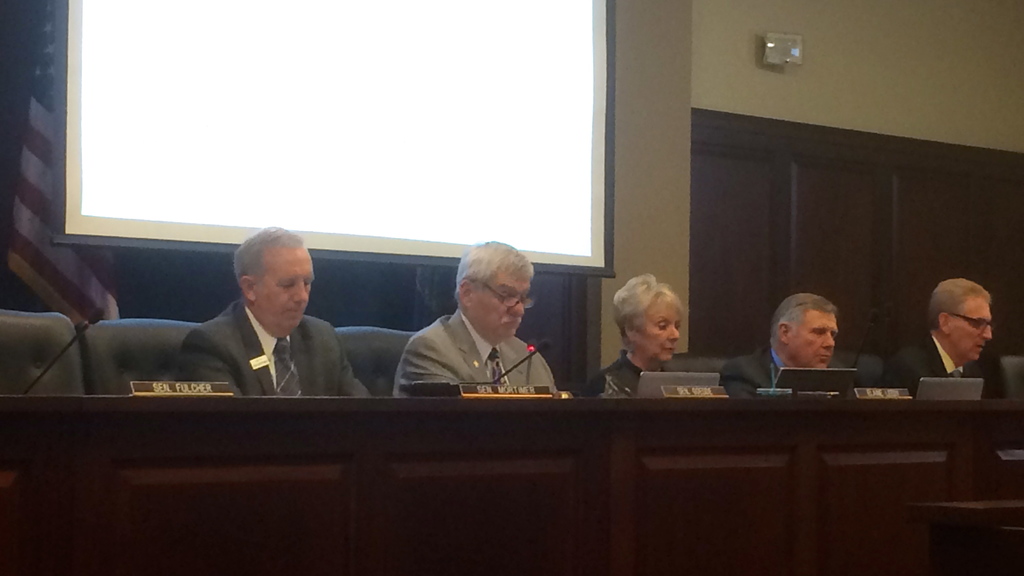After Alex Macdonald offered the Senate Education Committee an upbeat progress report on the troubled Schoolnet instructional management system Tuesday, Sen. John Goedde served up a kimchi comparison.

Goedde, the committee’s chairman, said he had once tried the Korean fermented side dish, didn’t like it, and will never try it again. Goedde, R-Coeur d’Alene, said he suspects many educators have no appetite to give Schoolnet another try. “How do you overcome that?”
“I think that’s been our focal point, the past six months,” said Macdonald, who is working on the Schoolnet rollout for the State Department of Education.
Schoolnet has been a focal point for legislators in recent months. In September, Goedde and nine other lawmakers heard scathing reviews — as district officials said the system was fraught with glitches and failed to generate accurate student data in a timely fashion. The on-the-ground critiques were a far cry from what the state promised in 2011: a pilot program that would help provide teachers with real-time student data that can be used to tailor learning.
Tuesday afternoon, Goedde’s committee heard a report card on Schoolnet. And according to Macdonald, the metrics are moving in the right direction. More and more teachers are using the system to create tests, and more students are logging in to take the tests:
- Unique teacher and staff logins totaled 6,383 in January, up 68 percent from October.
- Statewide, 3,888 students logged in in January, a 74 percent increase.
In order to encourage teachers to use the system — and to turn around timely data — the state has tried to streamline data reporting into the Schoolnet portal. Schools can now upload the most pertinent student data on a nightly basis, and receive up-to-date information.
The three-week to three-month delays in data prompted one of the state’s largest districts to ditch Schoolnet in 2012. After encountering “serious challenges” with Schoolnet, Bonneville School District switched systems, district school improvement and technology director Scott Woolstenhulme told senators. Bonneville is satisfied with the new system — Mileposts, marketed by Boise-based Silverback Learning Solutions — but it comes at a cost. Schoolnet is free to the state’s pilot districts while Mileposts costs school districts $5 per student.
Meanwhile, Schoolnet funding decisions loom. A three-year, $21 million J.A. and Kathryn Albertson startup grant is in its final phase, and the state must decide whether to spend $4.5 million to continue the program.
The state’s contract with Schoolnet’s provider, New York-based Pearson Education Inc., ends on June 30. A draft of a renewal agreement is in the works, Macdonald said.
Sen. Dean Mortimer, R-Idaho Falls, chastised Pearson for overselling Schoolnet at the outset, but conceded the project has made “good progress” over the past six to eight months. He questioned whether Pearson would continue to commit resources to the project to make it work.
In response to a question from Mortimer, Macdonald said the company has committed staff to the project — above contract requirements — to iron out problems.
Disclosure: Idaho Education News is funded through a grant from the J.A. and Kathryn Albertson Foundation.
